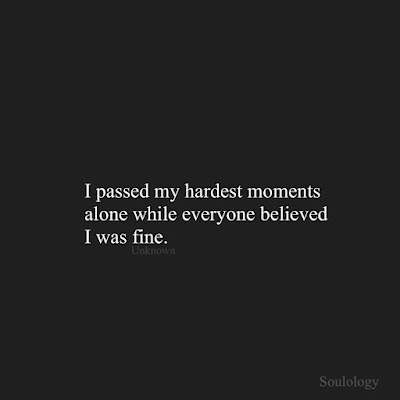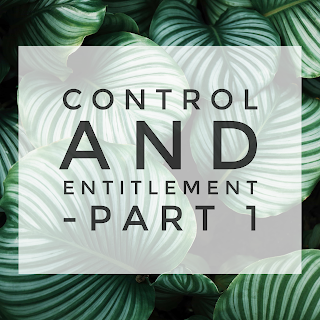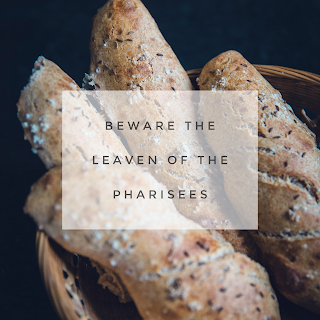Victim? Or Victim Mentality?
Victim? Or Victim Mentality?
Galatians 5:22-23a
The essence of trauma is helplessness combined with abandonment by potentially protective caregivers.
It is for this reason that a seemingly “insignificant” experience can lead to trauma. Without minimizing the damage resulting from the traumatic event itself, most often the event itself is not the most damaging part of the broader experience. What really wounds the brain is the helpless terror (perhaps of not being able to move your body or use your voice in such a way as to make the awfulness stop), and then the concomitant realization that you are utterly alone (that no one is coming to your rescue)."
Dr. Bessel Van Der Kolk, author of "The Body Keeps The Score" explains well in this short 2 minute video about trauma.
These quotes from the aforementioned book by Dr. Van Der Kolk digs a bit deeper into the meaning of trauma and PTSD and how it affects those effected by it:
“Research from these new disciplines has revealed that trauma produces actual physiological changes, including a recalibration of the brain’s alarm system, an increase in stress hormone activity, and alterations in the system that filters relevant information from irrelevant. We now know that trauma compromises the brain area that communicates the physical, embodied feeling of being alive. These changes explain why traumatized individuals become hypervigilant to threat at the expense of spontaneously engaging in their day-to-day lives. They also help us understand why traumatized people so often keep repeating the same problems and have such trouble learning from experience. We now know that their behaviors are not the result of moral failings or signs of lack of willpower or bad character—they are caused by actual changes in the brain.” (Page 2, Kindle)
“post-traumatic stress isn’t “all in one’s head,” as some people supposed, but has a physiological basis.” (Page 11, Kindle)
“Being traumatized means continuing to organize your life as if the trauma were still going on—unchanged and immutable—as every new encounter or event is contaminated by the past.” (Page 53, Kindle)
“When the brain’s alarm system is turned on, it automatically triggers preprogrammed physical escape plans in the oldest parts of the brain. As in other animals, the nerves and chemicals that make up our basic brain structure have a direct connection with our body. When the old brain takes over, it partially shuts down the higher brain, our conscious mind, and propels the body to run, hide, fight, or, on occasion, freeze. By the time we are fully aware of our situation, our body may already be on the move. If the fight/flight/freeze response is successful and we escape the danger, we recover our internal equilibrium and gradually “regain our senses.”” (Page 54, Kindle)
“Long after the actual event has passed, the brain may keep sending signals to the body to escape a threat that no longer exists.” (Page 54, Kindle)
“knowing that we are seen and heard by the important people in our lives can make us feel calm and safe, and why being ignored or dismissed can precipitate rage reactions or mental collapse.” (Page 78, Kindle)
“Being able to feel safe with other people is probably the single most important aspect of mental health; safe connections are fundamental to meaningful and satisfying lives. Numerous studies of disaster response around the globe have shown that social support is the most powerful protection against becoming overwhelmed by stress and trauma.” (Page 79, Kindle)
“…post-traumatic stress isn’t “all in one’s head,” as some people supposed, but has a physiological basis. Kardiner understood even then that the symptoms have their origin in the entire body’s response to the original trauma.”
(Page 11, Kindle)
Adrenaline rush: Symptoms, causes, and meaning
“An adrenaline rush is one of the body’s vital defense mechanisms. A stressful situation will trigger the release of the hormone adrenaline, also known as epinephrine, into the bloodstream.
The production of adrenaline occurs in the adrenal glands, which sit above the kidneys. Adrenaline is responsible for the fight-or-flight reaction to a threat, and it triggers specific processes in the body. For example, it might make the body send extra oxygen to the lungs to aid a person to run away.
As well as allowing a quick escape from danger, adrenaline has other effects on the body. These include:
- decreasing the body’s ability to feel pain
- increasing strength temporarily
- sharpening mental focus, which will allow a person to think quickly and form a clear plan to escape a potential threat
However, the release of adrenaline into the body may sometimes occur when there is no real threat. The hormone has the same effect on the body whether or not the danger is present.”
“Adrenaline triggers the following changes in the body:
- increasing the heart rate, which may lead to a feeling of the heart racing
- redirecting blood toward the muscles, causing a surge in energy or shaking limbs
- relaxing the airways to give the muscles more oxygen, which may cause breathing to become shallow
- increasing the speed at which the brain works to plan an escape route
- widening the pupils to let more light enter the eyes
Side effects may include sweating as a reaction to stress, feeling lightheaded due to changes in blood and oxygen supply, and a change in temperature as a result of the blood redirection.
The effects of adrenaline on the body can last for up to 1 hour after an adrenaline rush.”
- Anxiety
- Insomnia
- Irritability
- Flashbacks
- Nightmares
- Panic attacks
- Memory issues
- Poor concentration
- Trouble making decisions
- Difficulty learning new things
Traumatic stress can also lead to fatigue. When the brain uses a good amount of energy trying to protect us from perceived threats, we can feel emotionally, physically, and mentally depleted. Feeling this way can make daily responsibilities and self-care activities feel like a chore.
Living with a brain that’s always on alert can also make relationships challenging. When we constantly feel threatened, paranoid, or afraid, we may not accurately pick up on how others feel and think. This can lead to communication problems that can put a strain on some of our most important relationships.”
The thing about this constant adrenaline surge is that it messes up the adrenals and the ability to regulate our cortisol. It messes with our hormones as cortisol is a hormone. This can lead to adrenal fatigue and/or failure.
This video from abuse advocate and counselor, Diane Langberg, gives a more in depth look at the effects of trauma.
Gretchen Ronnevick, in her book, "Ragged" talks about forgiveness in her chapter on confession. She says “...we apologize to people and expect them to not be broken anymore. We shame them with being ‘unforgiving’ for dealing with the reality of the pain we have inflicted upon them. This is not true confession.
"Confession isn’t for our manipulative use. Confession doesn’t keep us from consequences here on earth. If you confessed a murder to the police, I’m guessing they wouldn’t say, “well, as long as you are sorry…“ Confessions aren’t a guarantee for reconciliation with others.
You can’t say, “yes, I punched you. But now that I’ve apologized you must accept and aren’t allowed to leave me.“ Or “yes, I lied to you over and over, but now that I confessed, you must believe me, or you are unforgiving.“"
Wendy Alsup says in her book, “I Forgive You”,
“…forgiving and being reconciled to our enemies or our loved ones is not about pretending that things are not as they are. It is not telling your opponent that what they did was ok or turning a blind eye to the harm they have done. Instead, true reconciliation begins by facing head on the horror of the acts of conflict. True forgiveness … is a deep and thorough look at the reality of a situation. It is an honest accounting of both actions and consequences. (The Book of Forgiving, p 58)
We won’t all get along until we have been honest about what brought us to the place of conflict to begin with. Exposing the truth, the awfulness of abuse and harm, is risky. It could make things worse. But only an honest confrontation with reality can bring real healing. “Healing and reconciliation demand an honest reckoning,” says Tutu (p 24). There is no other way to true reconciliation. There is no other way to truly get along in community together. We must confess the wrong we have done. Sin must be named.
The one who conceals his sins
will not prosper,
but whoever confesses and renounces them
will find mercy. (Proverbs 28:13)”
These podcast episodes on forgiveness, (part 1 and part 2), from Adam Young Counseling’s podcast, The Place We Find Ourselves, is so helpful. He discusses what forgiveness is and is not.
1 John 3:1-11
See what kind of love the Father has given to us, that we should be called children of God; and so we are. The reason why the world does not know us is that it did not know him. Beloved, we are God's children now, and what we will be has not yet appeared; but we know that when he appears we shall be like him, because we shall see him as he is. And everyone who thus hopes in him purifies himself as he is pure.
Everyone who makes a practice of sinning also practices lawlessness; sin is lawlessness. You know that he appeared in order to take away sins, and in him there is no sin. No one who abides in him keeps on sinning; no one who keeps on sinning has either seen him or known him. Little children, let no one deceive you. Whoever practices righteousness is righteous, as he is righteous. Whoever makes a practice of sinning is of the devil, for the devil has been sinning from the beginning. The reason the Son of God appeared was to destroy the works of the devil. No one born of God makes a practice of sinning, for God's seed abides in him; and he cannot keep on sinning, because he has been born of God. By this it is evident who are the children of God, and who are the children of the devil: whoever does not practice righteousness is not of God, nor is the one who does not love his brother.
For this is the message that you have heard from the beginning, that we should love one another.
2 Corinthians 7:9-10
I now rejoice, not that you were made sorrowful, but that you were made sorrowful to the point of repentance; for you were made sorrowful according to the will of God, so that you might not suffer loss in anything through us. For the sorrow that is according to the will of God produces a repentance without regret, leading to salvation, but the sorrow of the world produces death.
This blog post is in no way exhaustive of the topics of abuse, trauma, or forgiveness, but I wanted to give resources to those who can give more information. I simply want to inform others and give people the opportunity to learn more so as to be a help to those who need it, and so we can be on the lookout for those who may need someone to listen and be there. I genuinely desire to help people to be safe places for those who need it. A safe place where we can be a voice of love and reason and show authentic love that Jesus commands when He tells us to love our neighbor as ourselves. May we no longer speak from a place of ignorance or apathy, but of true and informed love (myself included, I am trying to learn here as well). I am praying for more safe places and people for those who are desperately searching for that. We don't have to have all the answers for sure, but being careful what we say and how we say it can be life and death for someone seeking a safe place. When I was being abused, I desperately needed someone to say "Whoa! That is not ok!" and to affirm that it was acceptable to not want to be treated in the manner in which I was, more than I needed someone to tell me to let it roll off my back and not take offense. That just allowed my abuser to continue without accountability and consequences and allowed the abuse to continue for years. Love doesn't allow others to hurt us, but holds them accountable and allows consequences to teach. Love and justice can be intertwined. God is a God of love and therefore also is a God of justice.
So let us all be careful what we say about a “victim mentality” as there are most likely true victims watching and listening.
“I used to think that the worst thing in life was to end up all alone. It's not. The worst thing in life is ending up with people who make you feel all alone.”
-Robin Williams
Soli Deo Gloria
Jennifer Moodie
















Comments
Post a Comment